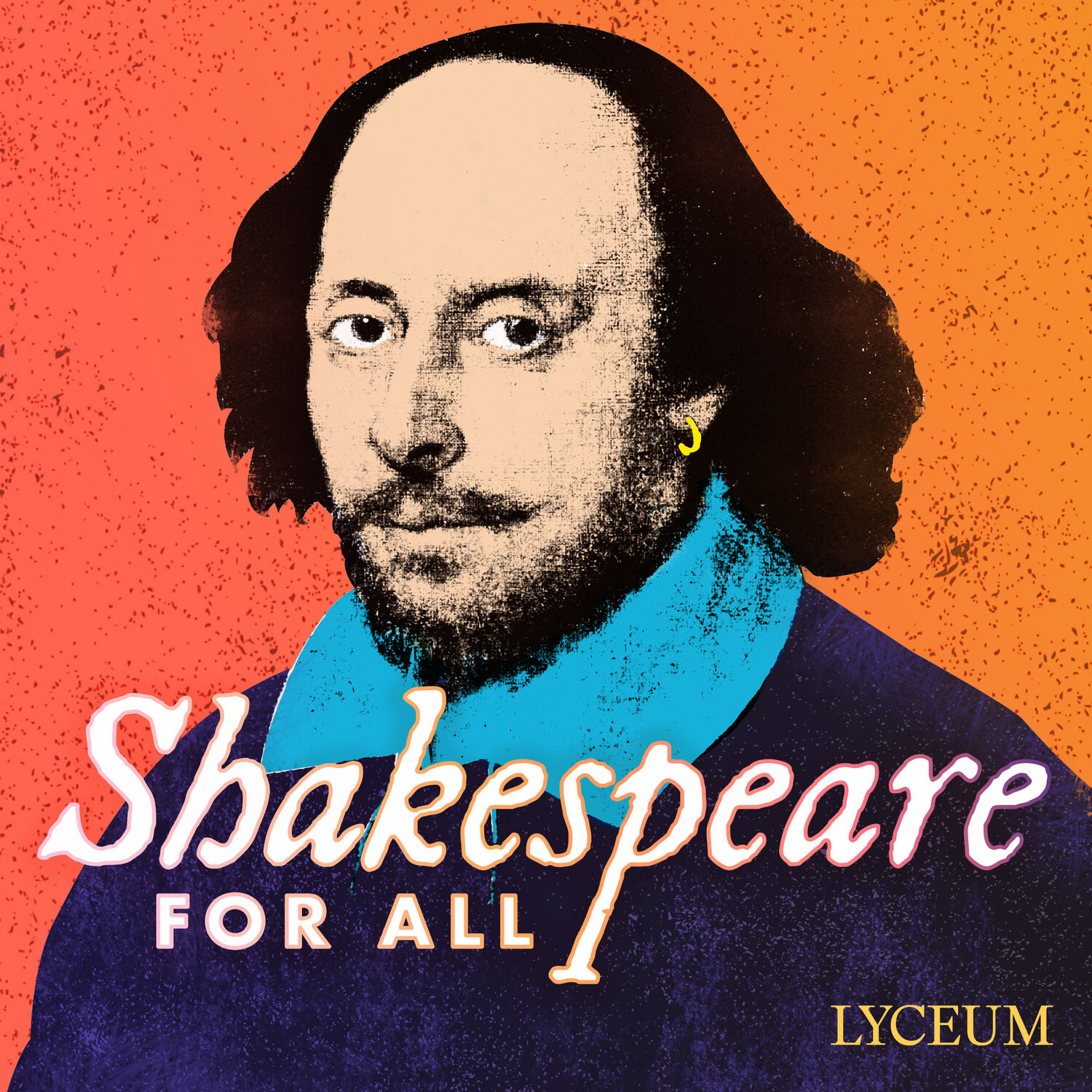Hamlet
“WHO’S THERE?”
What You'll Learn
The story of Hamlet and the historical background behind the play
The strategies Shakespeare used to create one of literature’s most complex and lifelike characters
The political, psychological, and philosophical questions that the play poses each new reader
Course Outline
Episode 1 - Hamlet: The Story and the History
Episode 2 - Hamlet: The Characters and the Questions
Episode 3 - Hamlet: The Language
Works Consulted for this Course
Garber, Marjorie B. Shakespeare After All. New York: Pantheon Books, 2004.
Greenblatt, Stephen. “Introduction,” Hamlet, in Shakespeare, William. The Norton Shakespeare. Edited by Stephen Greenblatt, Walter Cohen, Suzanne Gossett, Jean E. Howard, Katharine Eisaman Maus and Gordon McMullan. 3rd ed. New York: W. W. Norton & Company, 2016.
Neill, Michael. “Hamlet: A Modern Perspective.” Folger Shakespeare Library, https://shakespeare.folger.edu/shakespeares-works/hamlet/hamlet-a-modern-perspective/.
Shakespeare, William. Hamlet, Prince of Denmark. Edited by Philip Edwards. New York: Cambridge University Press, 1985.
Shakespeare, William. Hamlet. Edited by Ann Thompson and Neil Taylor. The Arden Shakespeare revised edition. London: Bloomsbury Publishing Plc, 2016.
Smith, Emma. This Is Shakespeare. New York: Pantheon Books, 2020.
Special thanks to Rhema Hokama for her assistance.
William Shakespeare’s Hamlet contains some of the most famous words, images, and characters in all of literature. In this course, you’ll learn Hamlet’s story, explore its lead character’s mind, and hear its key speeches performed and analyzed by world-class Shakespearean actors and literary scholars.
In Part 1, you’ll be guided through a detailed account of the story with commentary by Paulina Kewes, professor of English at the University of Oxford. Professor Kewes lays out the wide-ranging moral and political questions that Hamlet raises and reveals how the play engages with some of the most important historical events of Shakespeare’s time. This summary is told using the language of the play itself, placing key quotations in context to help you understand where these lines come from and what they mean.
Part 2 turns from the political to the philosophical and psychological, as Simon Palfrey, professor of English at the University of Oxford, analyzes Hamlet’s character, language, and thought. You’ll learn what makes Hamlet one of the most complex and lifelike characters in literature and what strategies Shakespeare used to create this character. You’ll also explore the play’s deep questions about action, freedom, existence, and death--and learn how questions like these keep Shakespeare’s work open and alive.
In Part 3, Professor Kewes and Professor Palfrey offer detailed close-readings of some of the play’s most significant speeches, including Hamlet’s famous soliloquies. You’ll watch critical interpretation in action as our featured scholars offer contrasting readings of a single speech; you’ll uncover the images and metaphors behind Hamlet’s words that reveal the unique bent of his imagination; and you’ll learn the precise linguistic techniques Shakespeare uses to convey a living mind in the act of thinking.
You can hear the third episode of this course for free below. For the full course, subscribe today on Himalaya Learning. Use the promo code SHAKESPEARE for 14 days free.
Episode 3 - Speeches & Performers
Claudius, 2.1, “Though yet of Hamlet our dear brother’s death …” (Andrew Woodall)
Hamlet, 2.2, “Why, what an ass am I! This is most brave …” (Dame Harriet Walter, DBE)
Hamlet, 3.1, “To be or not to be—that is the question…” (Anton Lesser)
Hamlet and Gertrude, 3.4, “Here is your husband, like a mildewed ear…” (Kelly Hunter, MBE)
Bonus speech: Hamlet, 4.4, “How all occasions do inform against me…” (Jeffrey Blair Cornell)
Course Instructors
Paulina Kewes
Professor of English Literature, University of Oxford
Photo credit: Ander McIntyre.
Paulina Kewes is Professor of English Literature at Jesus College at the University of Oxford (Jesus College faculty page; University of Oxford faculty page). She is a scholar of history and literature with expertise in early modern English politics and drama, above all the plays of Shakespeare. Professor Kewes took her DPhil at Jesus College, Oxford in 1996 and returned to Jesus College as a Tutorial Fellow in 2003. She is a Fellow of the Royal Historical Society and serves on the Oxford English Monographs Committee and the editorial boards of The Huntington Library Quarterly, Postgraduate English and Critical Survey. Professor Kewes is a developer of the Holinshed Project and was a co-investigator for the AHRC-funded Stuart Successions Project, which explored succession literature from James I to Queen Anne and led to the development of Stuarts Online. She is the author or editor of numerous scholarly works, including Authorship and Appropriation: Writing for the Stage in England, 1660-1710 (Oxford, 1998); Stuart Succession Literature: Moments and Transformations (Oxford, 2019); and Ancient Rome in English Political Culture, c. 1570-1670 (special issue of the Huntington Library Quarterly, 83: 3, 2020). She is completing a monograph entitled Contesting the Royal Succession in Reformation England: More to Shakespeare for Oxford University Press, which culminates with a novel reading of Hamlet.
Simon Palfrey
Professor of English Literature, University of Oxford
Simon Palfrey is Professor of English at Brasenose College at the University of Oxford. His recent work explores the unique kinds of life generated by dramatic, poetic, and fictional forms and the opportunities this opens up for more imaginative, philosophically adventurous, and politically engaged critical work. His books include Doing Shakespeare (Arden, 2004; 2nd ed. 2011), a TLS International Book of the Year; Shakespeare in Parts (Oxford, 2007, with Tiffany Stern), the MRDS Book of the Year; Poor Tom (Chicago, 2014); Shakespeare's Possible Worlds (Cambridge, 2014); and the novel Macbeth, Macbeth (Bloomsbury, 2016, written with Ewan Fernie). Professor Palfrey’s current project is the twice AHRC-award-winning Demons Land: a poem come true, a mixed media event (film, drama, dance, paintings, sculptures, soundscapes, text) that imagines an island built in the image of Spenser’s epic poem, The Faerie Queene. Professor Palfrey is writer and director of the project, whose latest iteration is a collaboration with indigenous Australian artists and practitioners, exploring different understandings of home, land, and country; for more details, see demonsland.com.




